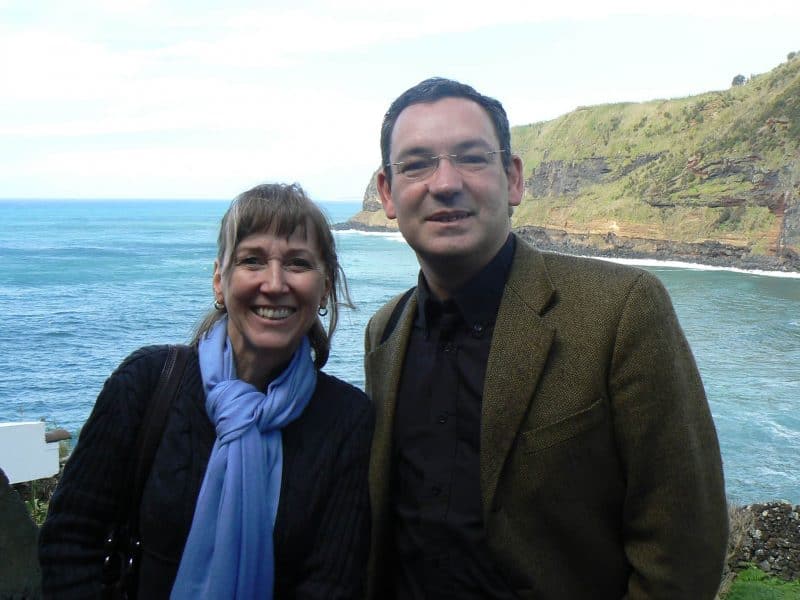Azores Facts from Guide Luis Daniel

However exciting travel may be, there is nothing better than that first night back when you sleep in a very familiar bed and wake up to the sounds and smells you’re used to living with every day. No hotel room can be as good as one’s own bed!
A few random thoughts about the Azores, many learned from Luis our guide, who proved to be a font of facts and background about just about anything in Europe.
*The Azores rely on geothermal systems, drawing the scalding water up from the ground to make steam and turn generators, it provides about 40% of their electricity.
*In the summer, travelers between islands are strictly limited to only 20 kilos of freight and luggage. Some travelers end up paying more than the price of their ticket in freight charges and sometimes the pilots eject luggage that weighs too much, and the visitors have to wait until the next flight comes in to get their bags.
*The population of the islands has been going down for many years; it stands now at about 244,000 and on some islands like Santa Maria it’s plummeted by half. There are not many jobs on smaller islands separated by 300 kilometers from Sao Miguel.
*If not for the Azores, NATO would never have admitted Portugal into its ranks. That’s because back then in the 70s the country was a dictatorship, but the generals wanted access to the Azores’ strategic harbors and listening posts.
*In the village of Furnas there are 97 springs and 27 different types of water, here the earth’s crust is just 3000 meters, that’s why there are so many bubbling hot springs. In most of the world the crust is ten times thicker.
*An earthquake in 1957 nearly emptied the island of Faial, and then senator John F. Kennedy arranged to let hundreds of thousands of Azoreans emigrate to the US. At one point the islands seriously considered letting the US annex them, since the Portuguese government was so weak in its response to the devastation of the earthquake.
*The name Azores has three possible origins: A buzzard is known by the same name; a town in central Portugal where many original settlers came from is called Azores and it might have referred to the azure blue of the sea first seen by explorers.

November 14, 2011 @ 7:35 pm
Hello-
This is going to sound weird but is there an email you can share with me for Luis Daniel? He used to be my pen pal for years after my family visited Terceira.